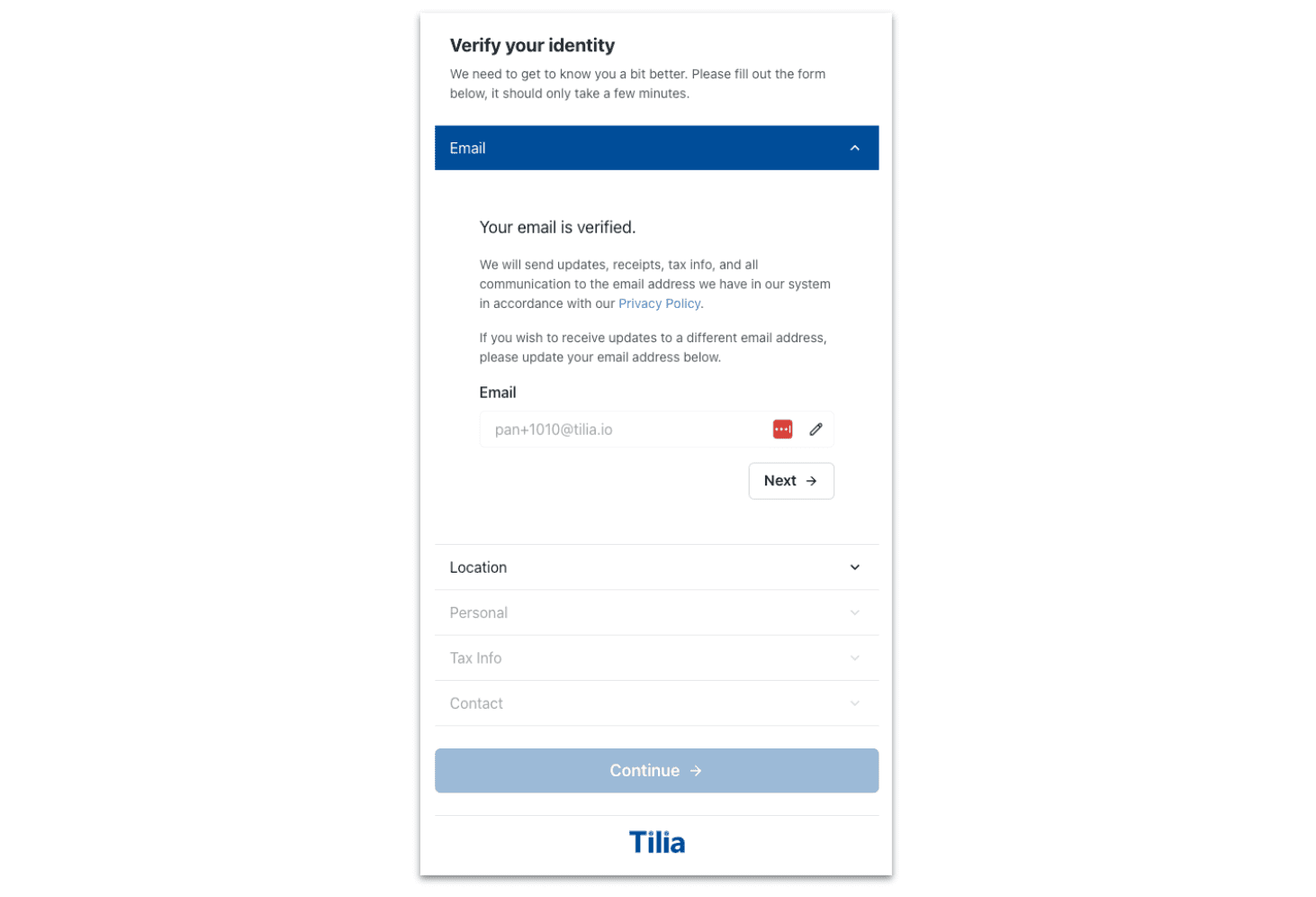KYC Automation
Automate decision making in the KYC (Know Your Customer) human review process to reduce costs and enable scale
Year
2023
Company
Tilia
Role
Lead Product Manager
Stakeholders
Compliance, Finance, Product, Engineering
Background
In one month, our largest customer 4x’d their KYC application volume with us. This resulted in a backlog of KYC applications. overwhelming the Compliance team, requiring new employees to be hired and non-KYC employees to help out.
Skills Employed
Data Analytics & KPI definition, Competitive Research, Product Definition & Requirements Gathering, Flow Charting, QA, Feature Flagging
Problem Definition
KYC costs were TOO HIGH
Total KYC Costs were #1 Variable Cost
30% of applications required human review
Human cost to review was 5x processing costs
Compliance team couldn’t handle increased volume
Median time to review applications > 5 days
Communication to end-users was manual (Support tickets)
Ideation
Once this topic was prioritized as an issue, I lead ideation sessions with Compliance, Product, and Finance stakeholders to identify areas of opportunity. Some topics of discussion included:
Off board KYC costs to customer and/or user
Reduce % of users completing KYC
Reduce % of applications requiring human review
Find a way to not require KYC
In order to land on a path forward, we needed to better understand why KYC applications required review.
Further Analysis
The Compliance team was reviewing KYC applications in the 3rd party tool that processed our KYC applications. We weren’t capturing triggered rules in our database and further, the 3rd party tool offered no analytics on the most common rules triggered.
In order to run an analysis, we needed to first begin storing this information in our own database. Upon doing so, we quickly learned:
3 rules accounted for most of the US applications requiring review
US applications accounted for about 80% of all KYC applications.
Thus, we selected the opportunity to address reducing the percentage of apps requiring human review and focusing on the 3 most common triggered rules.
Tech Design
Now that an opportunity was identified and quantified, I lead technical design sessions with Engineering to create a “Retry” mechanism:
Users which triggered a rule in the defined set of rules would receive a message to review their application and resubmit
Applications triggering defined rules would be system canceled and never reviewed
Users were limited to 3 applications in 24 hours, and the final application would land in human review
Results
After testing this feature with a single customer, we found:
Human review volume in the US dropped by ~80% (>50% globally)
Median time to review dropped to <8 hours
Average cost per KYC application dropped by ~40%
KYC related Support tickets reduced by 50%
With these results, we were able to roll this feature out for all customers and prevent any additional hirings to the KYC team







